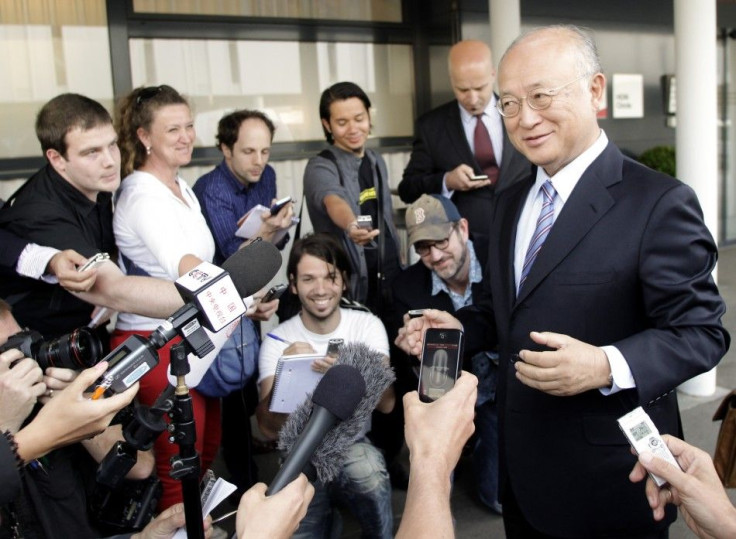IAEA Chief Arrives In Iran, Ahead of Major Baghdad Talks

The chief of the United Nations’ watchdog, the International Atomic Energy Association (IAEA), arrived in Tehran on Monday to resume talks over Iran’s nascent nuclear energy program, ahead of more comprehensive negotiations on Wednesday between Iran and six world powers (U.S., Russia, China, Britain, France and Germany) in Baghdad, Iraq.
Yukiya Amano is scheduled to meet with Saeed Jalili, Iran’s No. 1 nuclear negotiator, as well as other top officials, including foreign minister Ali Akbar Salehi and the boss of Iran's nuclear energy organization, Fereydoun Abbasi-Davani.
We regard the visit... as a gesture of goodwill, Salehi told Iranian media.
Amano’s principal task will be to persuade Iranian figures to allow U.N. inspectors to monitor sites, including the military complex in Parchin that the IAEA suspects is being used as a uranium enrichment center (a precursor to making atomic bombs).
Amano is accompanied by two of his top aides, Herman Nackaerts, the IAEA deputy director general for safeguards, and Rafael Mariano Grossi, the assistant director general for policy.
Iran has long insisted that its nuclear program is designed purely for peaceful purposes; however, they have dragged their feet in allowing foreign observers access to key nuclear locations. The Iranian government has declared that Parchin, located near Tehran, is dedicated to constructing conventional weapons.
IAEA officials were denied entry into Parchin on two separate occasions earlier this year.
Amano is cautiously optimistic that IAEA will be granted such access this time around, in the wake of friendlier discussions between Iran and the West in recent weeks and months.
Nothing is certain in life, in diplomacy, he told reporters in Vienna, prior to his departure.
But there has been good progress. I really think this is the right time to reach agreement.”
He added: We need to keep up the momentum.”
Heshmatollah Falahtpisheh, an Iranian politician and member of the parliamentary committee of national security and foreign policy, told Associated Press that his government would probably allow inspections of the Parchin facility, if [Tehran] feels there is goodwill within the (IAEA) agency.
However, Falahtpisheh also cautioned that any such compromises by Iran should be accompanied by an easing of economic sanctions by the West.
In opening up to more inspections, Iran aims at lowering the crisis over its nuclear case, he said.
But if the sanctions continue, Iran would stop this.
Meanwhile, Israel will be closely monitoring IAEA activity in Iran.
Prime Minister Benjamin Netanyahu and defense minister Ehud Barak have long warned that negotiations and diplomacy will fail to pressure Iran into relinquishing its nuclear ambitions and that a military strike on Iran may be the only option.
However, the former chief of Israel’s air force, Maj.-Gen. Ido Nehushtan ,has warned that public discussions about attacking Iran’s nuclear facilities is counter-productive and will only exacerbate fears among the Israeli population.
The public discourse on the issue of attacking Iran is exaggerated and damaging, unproductive from an operational perspective, and taking place without the proper information, he told Israeli radio.
There are some things you only understand sitting in this chair. The air force is ready and effective for the challenges it will be required to face.
© Copyright IBTimes 2025. All rights reserved.





















